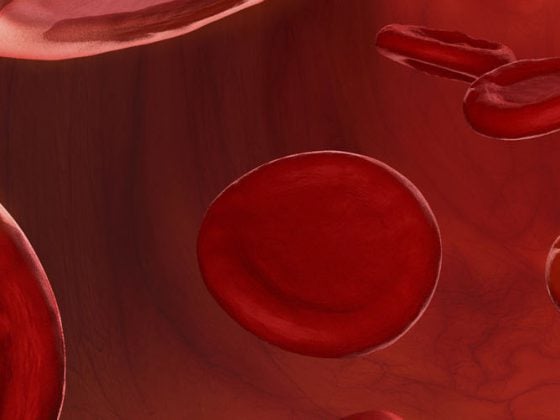Hypertension is one of the most important risk factors for the development of heart failure. At the same time, hypertension is strongly involved in the development of atherosclerosis and thus coronary heart disease with myocardial infarction leading to cardiac dysfunction. In his presentation at the 12th Zurich Hypertension Day, Andreas Flammer, MD, from the University Hospital Zurich, focused in particular on the importance of the small vessels and the treatment of hypertension with concomitant heart failure.
In heart failure, a distinction is made between HFrEF (Heart Failure with reduced ejection fraction) and HFpEF (Heart Failure with preserved ejection fraction). The ESC guidelines of 2016 newly introduced a third category, HFmrEF (Heart Failure with midrange ejection fraction), which, however, is still poorly studied.
If clinic and symptoms are present and ejection fraction is limited, i.e., less than 40%, the diagnosis is HFrEF, typically after myocardial infarction or in the setting of dilated cardiomyopathy. In HFpEF, the same symptoms occur but with normal ejection action. Here, additional criteria are needed, such as a biomarker for increased “wall stress in the heart,” and there must be relevant structural heart disease, left ventricular hypertrophy, enlarged left atrium, or dystolic dysfunction. This is then referred to as an HFpEF.
Clinically relevant changes
Dr. Andreas Flammer points out that regardless of these categories, hypertension is present in almost all patients with heart failure, at least at the beginning of the disease (HFrEF 84%, HFpEF 91%) [3]: “Hypertension plays a very significant role, both because it is a risk factor for coronary artery disease and myocardial infarction (leading primarily to diastolic dysfunction), but also because it can lead to diastolic dysfunction over time through left ventricular hypertrophy, cardiac remodeling, and other factors.”
Further clinically relevant are blood pressure and stroke volume, especially if the heart is already limited in its function [2]. In this context, changes in afterload, i.e. peripheral resistances, can cause large changes in stroke volume. When peripheral resistance increases, a normal heart can hold up well. However, a diseased heart cannot properly handle an increase in afterload and cardiac output decreases disproportionately. “This is an important reason to treat blood pressure in patients with heart failure,” the speaker explained.
Significance of endothelial dysfunction
Hypertension chronically damages the heart over time, leading first to cellular and molecular damage. Remodeling of the myocardium, fibrosis, inflammation, and a disturbance of vascular function called endothelial dysfunction occur [3]. It is a crucial parameter and plays a central role over the entire course of the disease, including the development and prognosis of heart failure.
The speaker points out that epithelial function is measured in various ways at the University Hospital Zurich, now also at the back of the eye: “We assume that the eye is a window to the heart. In heart failure, it can be determined that the microcirculation in the eye is significantly restricted.” The small vessels play an important role overall, even in the case of an infarction or plaque rupture. If the microcirculation is normal, plaque rupture does less damage. However, if there is a malfunction of the vessels , the damage is much greater. This has been shown, for example, in studies in patients with left ventricular hypertrophy [4]: When these patients suffer an infarction, more complications occur and the prognosis is worse. “Therefore, it is also crucial here that hypertension is adequately controlled,” says Dr. Andreas Flammer.
Features of the HEpEF
The speaker particularly mentioned HEpEF, which is mainly due to changes in the small vessels. When HEpEF is diagnosed, most patients also have AF, and vice versa [5]: “You have to remember, many patients with AF have HEpEF, and you should look for it.”
Another feature of HEpEF is an excessive rise or fall in blood pressure with the same change in afterload or preload [6]. If afterload increases in HEpEF, blood pressure increases disproportionately (or decreases disproportionately if afterload is decreased, e.g., by nitro). The relaxation disorder of the ventricle causes a delayed pressure drop in diastole. This results in increased left ventricular pressures at the end of diastole, which are directly transmitted to the lungs, leading to respiratory distress, especially during exercise. Dr. Andreas Flammer points out that hypertension can not only lead to HEpEF, but is also a trigger for acute decompensation. Together with atrial fibrillation, this causes patients to become symptomatic, have water retention, develop dyspnea, etc.
Treatment of hypertension in concomitant heart failure
The three pillars of systolic heart failure (HFrEF) therapy are ACE inhibitors, beta blockers, and mineral corticoid receptor antagonists, as these prolong patient survival, explains Dr. Andreas Flammer. They are also safe drugs in HEpEF, have no prognostic impact there. If these drugs are not enough, diuretic can be given in addition. As a third step, amlodipine or felodipine, both calcium antagonists, can be used. This is in accordance with the guidelines in the treatment of heart failure with concomitant hypertension [7].
Source: 12th Zurich Hypertension Day, January 19, 2017, Zurich
Literature
- Bhalia et al. NEJM 2006; 355:251-9
- UpToDate Adapted from Maron and Rocco 2011
- Volpe M et al. J Cin Hypertens 2010
- Carlzcci E et al, IJC 2000.
- Rosita Zakari et al. Circulation. 2013
- Borlang BA, and Paulus WJ, Eur HeartJ 2011.
- Heart Failure Guidelines EHJ/EJHF 2016
HAUSARZT PRAXIS 2017; 12(2): 34-35











